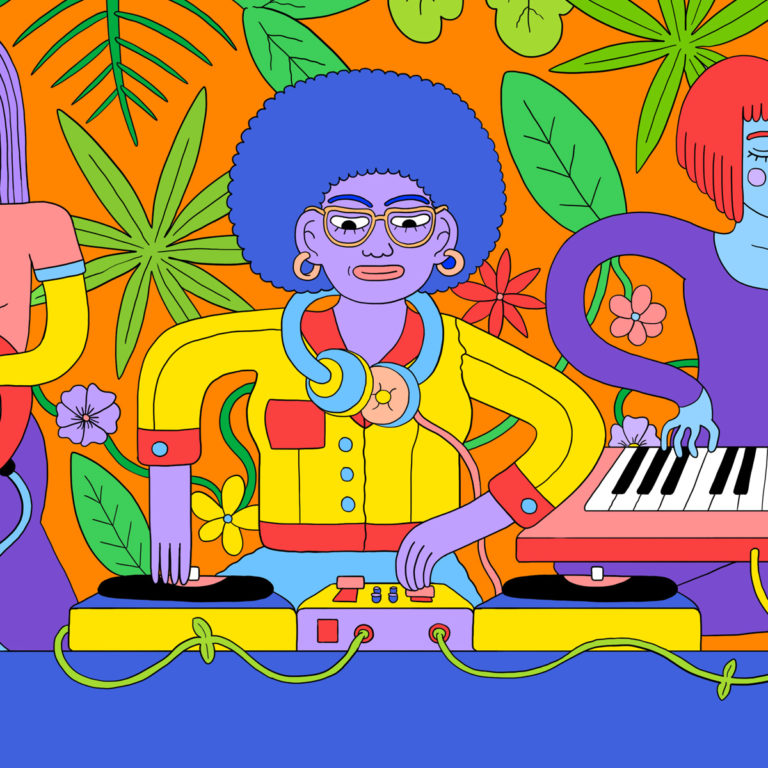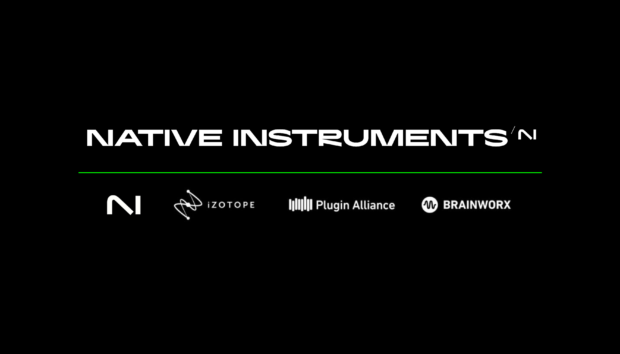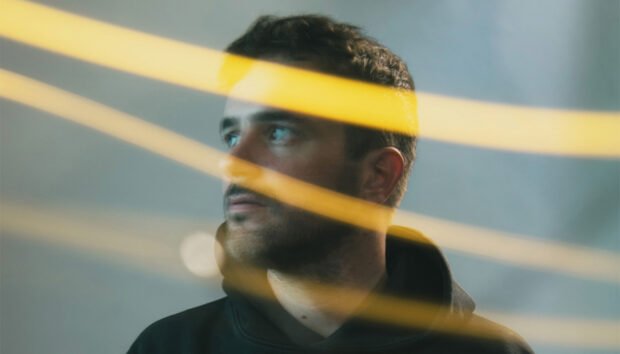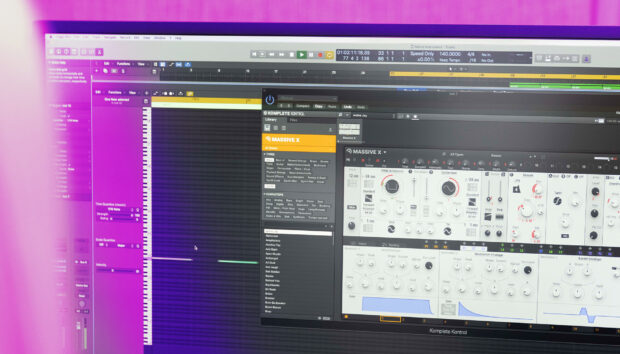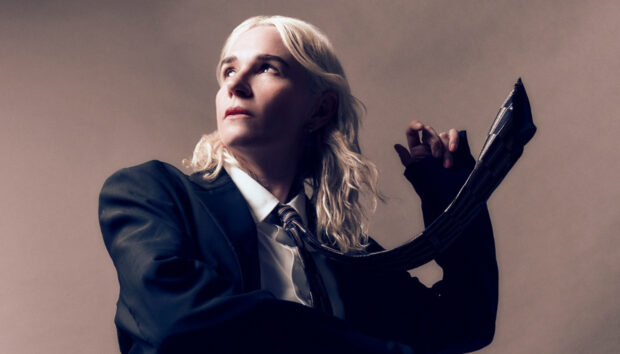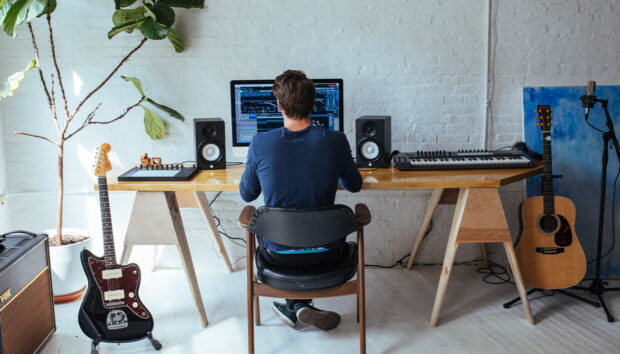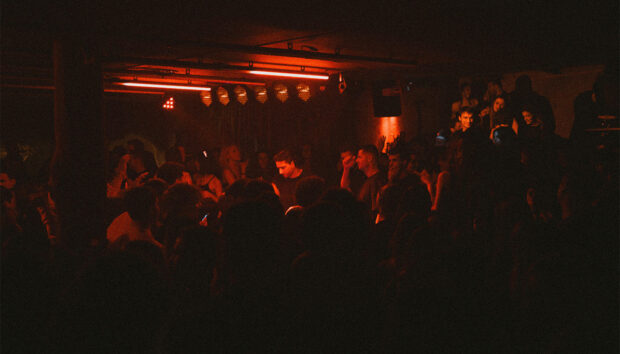Today, March 8, is International Women’s Day – an annual celebration of women’s social, economic, cultural, and political achievements. This year, we wanted to mark the occasion by providing a platform for some of the brightest talents in electronic music to share their views on how we can move forwards as an industry and become a more diverse and inclusive space for people of all genders.
So we asked them one question: What do you think needs to be done in order to improve the participation and visibility of women, femme, trans & non-binary people in electronic music?
Here’s what they had to say.
Madame Gandhi, producer and DJ
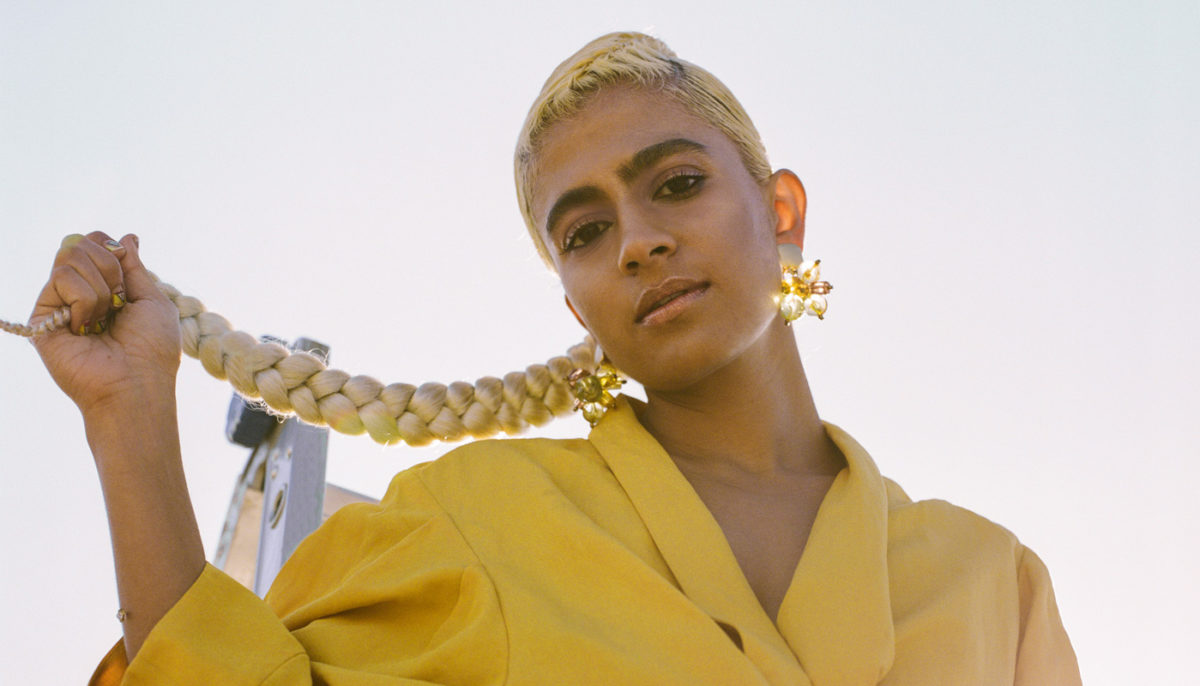
I think the main thing that needs to be done is encouraging girls to produce and perform their own beats and DJ sets when they’re young! When I was 15, I started DJing publicly at inter-scholastic events around NYC. I even performed at live music venues in NYC where they would put Xs on my hands, since I was under 21! This gave me a lot of confidence to perform in large settings and to feel comfortable with tech and the evolution of tech.
When I see initiatives like Girls Make Beats or Beats by Girlz, I feel deeply warmed at how young girls are so comfortable and confident producing their own beats. At Girls Rock Camp, I have also taught DJing, and am so inspired by how easily these kids get the hang of it and are eager to share some of their own songs.
When girls hit puberty, we are so heavily marketed with the belief that our value comes from our looks instead of our skill sets, so we devote a larger amount of our time to beauty and outer appearance, instead of extra-curricular activities in the way that boys are able to. It is far easier for girls to be marketed make-up blogs, hair products, or clothing accessories, than the gear to be the best DJ or producer they can be! Shifting this is what builds the future pipeline, so that women and people of all alternative gender expressions are actively participating in mainstream DJ and producer culture.
Trakgirl, producer and entrepreneur
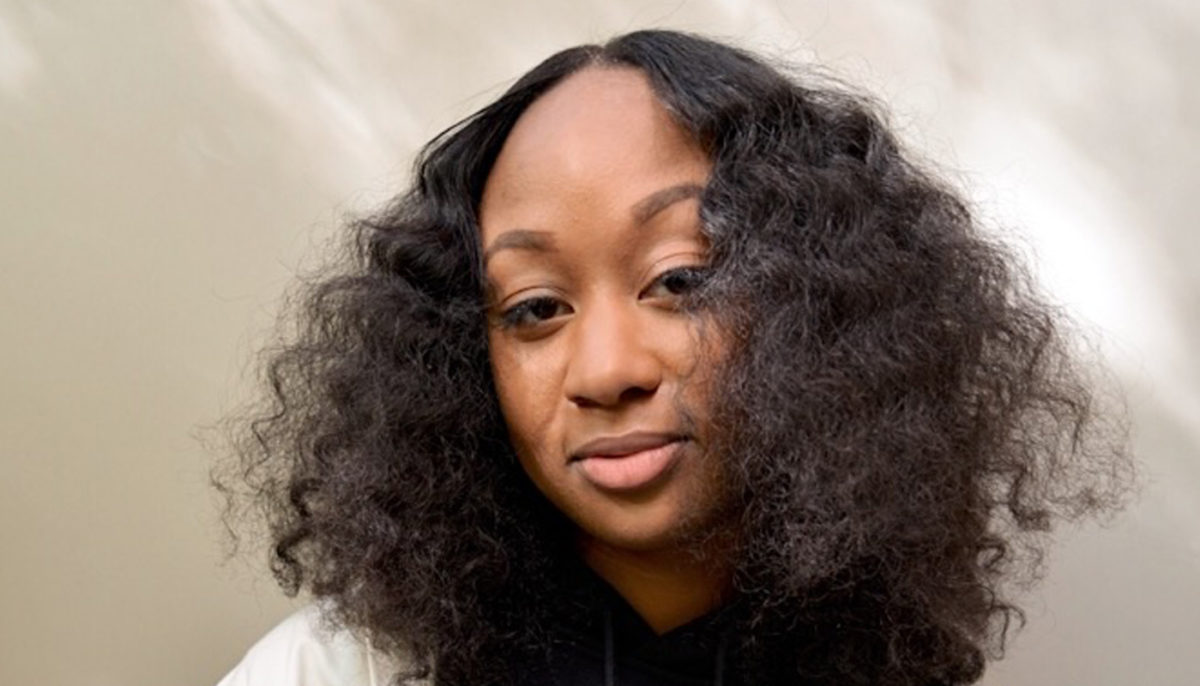
To increase visibility and improve the participation of women in music, I truly believe we have to create safer spaces. Having accessibility to creative spaces that encourages and empowers women is key. Another key is creating programs that not only offer mentorship and panels but innovative workshops that sharpen skill sets in music production. Also, building true, authentic diversity through collaboration across all genres would help as well. You shouldn’t force women into one box; we’re multi-hyphenated.
Borusiade, producer and DJ
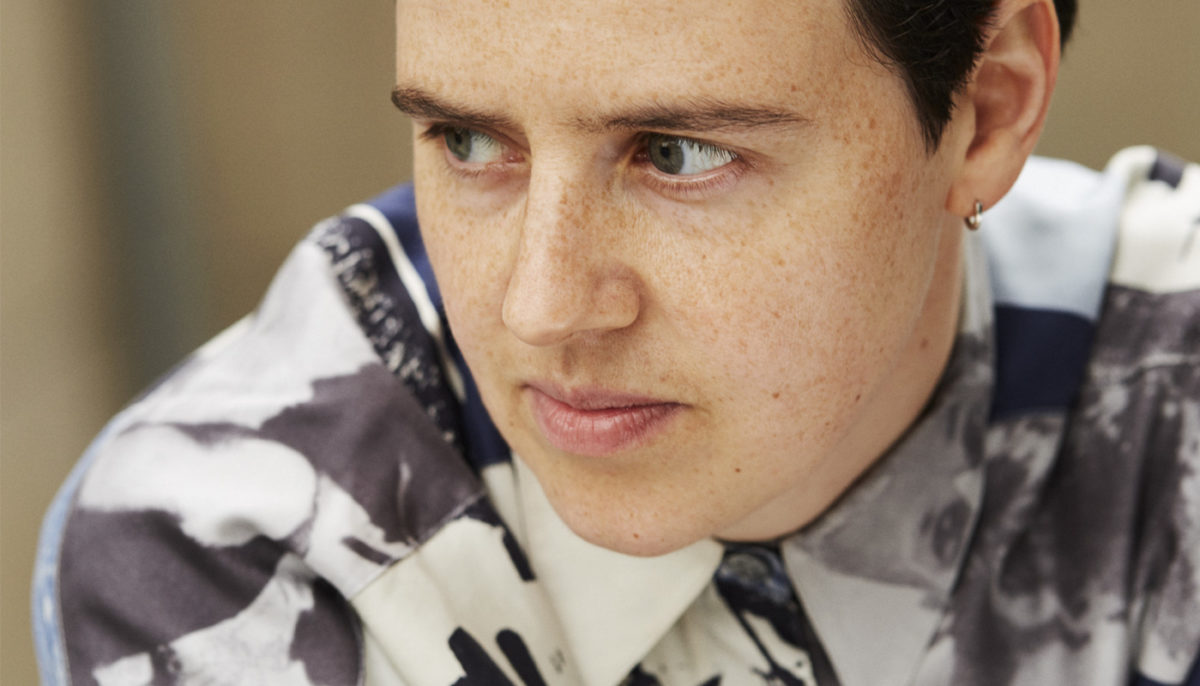
I believe that contact with technology, disregarding gender, must be proposed to kids at a very early age; have them live with this as a normality. That way, when they grow older and feel ready to choose, to discover, or to follow a passion or professional development, this is a clear option.
At the moment, with some exceptions in more liberal and privileged environments, girls don’t even cross paths with technology. It takes a real drive and stubbornness – plus consistent personal effort – to fight against social preconceptions to follow a career in a technical field, electronic music being only one of them.
Ideally, there should be no differences between genders when it comes to the upbringing and education of children. Everyone should get the same set of choices and decide whether it is of interest for them. But the choice has to be there.
I also know that this is an utopian idea, and that it should be extended on all levels in human society. Still, the reality is that societies are unequal all over the world, and the discussion we are having here is only possible because we live in the most privileged part of it.
But maybe this can be a start.
Josa Peit, singer and producer
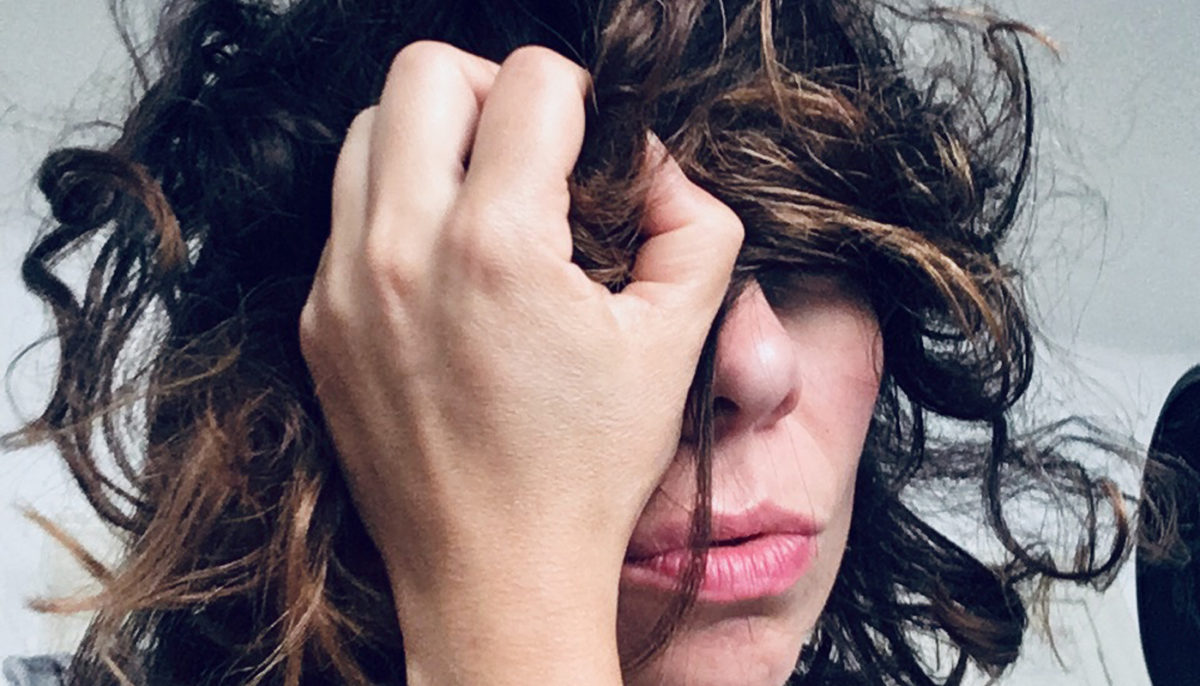
Starting early. Besides producing, I also run workshops with girls, trans, and non-binary kids at the interface of music making and digital tech. In my experience, a playful way of learning, experimenting, and creating early on will boost confidence and enable kids to participate in shaping their future and eventually the future industry. There is still such a huge lack of knowledge of computing, sound creation, and its rich history of female pioneers. This is something we should and can actively change in order for a future generation to become visible and take an active part in electronic music.
Ziúr, producer and DJ
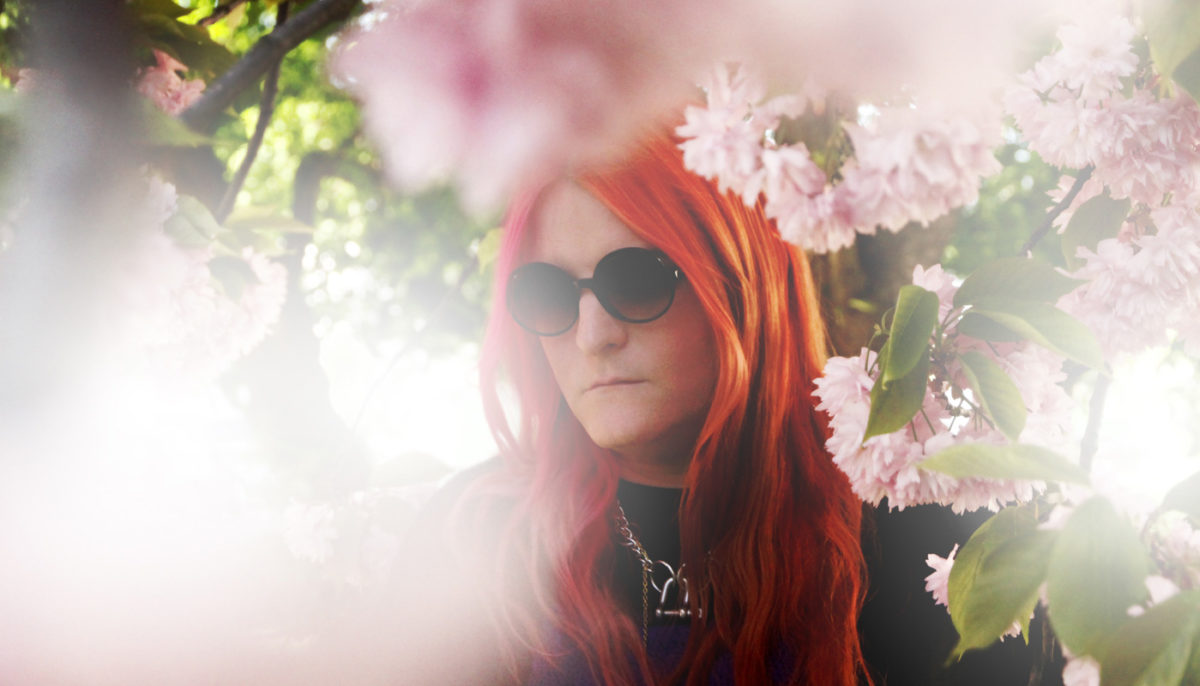
Electronic music is only portraying a fracture of a bigger system intact. The loop is shorter but the story stays the same.
Start with the idea that women’s day is every day. Incorporate concepts of change in your daily routine. Question the structures you know, then think and act beyond these boundaries.
The annual institutional outcry on March 8 shows that sloppy care only surfaces on the hip occasion, rather than aiming for substantial, long term participation. While marketing strategies are seemingly claiming interest in offering solutions, wearing the badge only functions as a tool to tokenize, this ultimately results in being counter productive.
Change can only thrive when being introduced through a heartfelt agenda.
Joyce Muniz, producer
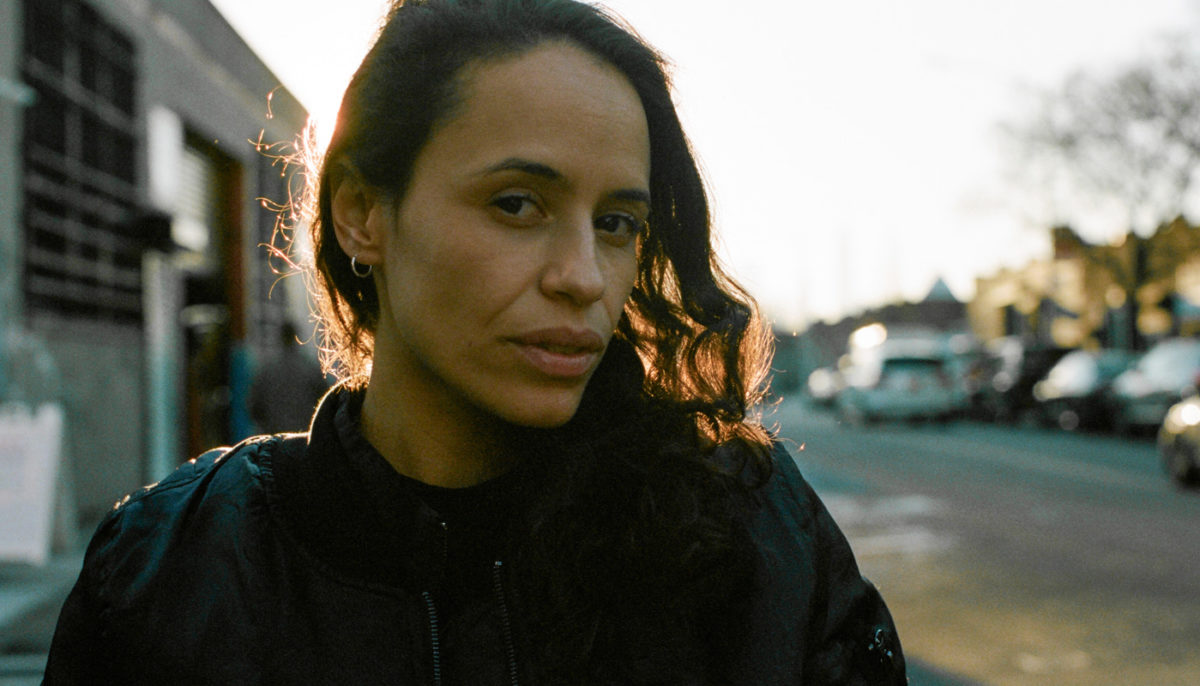
Female artists could be better represented in the public eye if festivals and clubs would build line-ups that contain 50% female and 50% male artists. Nowadays, there are many talented female artists out there, so it should be not difficult to build a well-balanced line up. Luckily, there are a few promoters that already show respect to the community in that regard, but there is still a lot that can be done.
Lady Starlight, producer and DJ
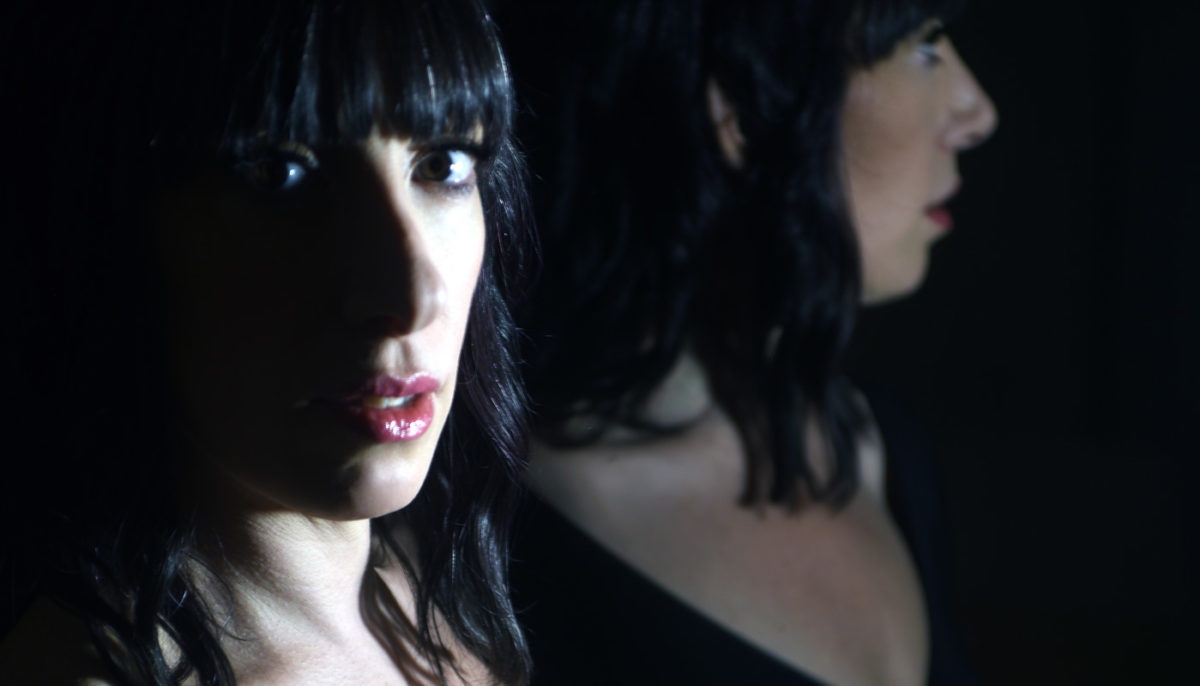
The answer to this question has become far less clear in the past few years: Women’s equality has been a front-and-centre issue. I applaud the recent public commitment to actively promote female artists, but I’m also troubled by the consequences – people have become disturbingly comfortable in airing the opinion that female artists are only successful because of their gender.
The rise of the disparaging label, ‘Instagram DJ’, if you really break it down, is levelled almost exclusively at women. It’s a short way of saying that someone only looks good on camera and doesn’t really know how to DJ, and certainly doesn’t know how to produce.
The irony of it all is that the well-intentioned policies addressing equality essentially perpetuate the idea the gender should be considered before talent. It’s this idea that people with existing biases see as a justification for questioning women’s abilities. To properly address inequality, we must focus on the system, not enact a superficial solution by creating a quota.
The key to meaningful change is creating diversity at the core: Promoters, label managers, journalists, sound engineers, and other positions that make up the industry. All artists can only operate within the existing system. Inequality is not just a gender issue. It affects people of color, economic class, country of origin… the list goes on.
This isn’t about who ‘deserves’ what. It’s about the quality of music. The more inclusive the industry is, the more voices that can be heard, the more interesting the music will be.
No Shade, collective of DJs, VJs, and producers
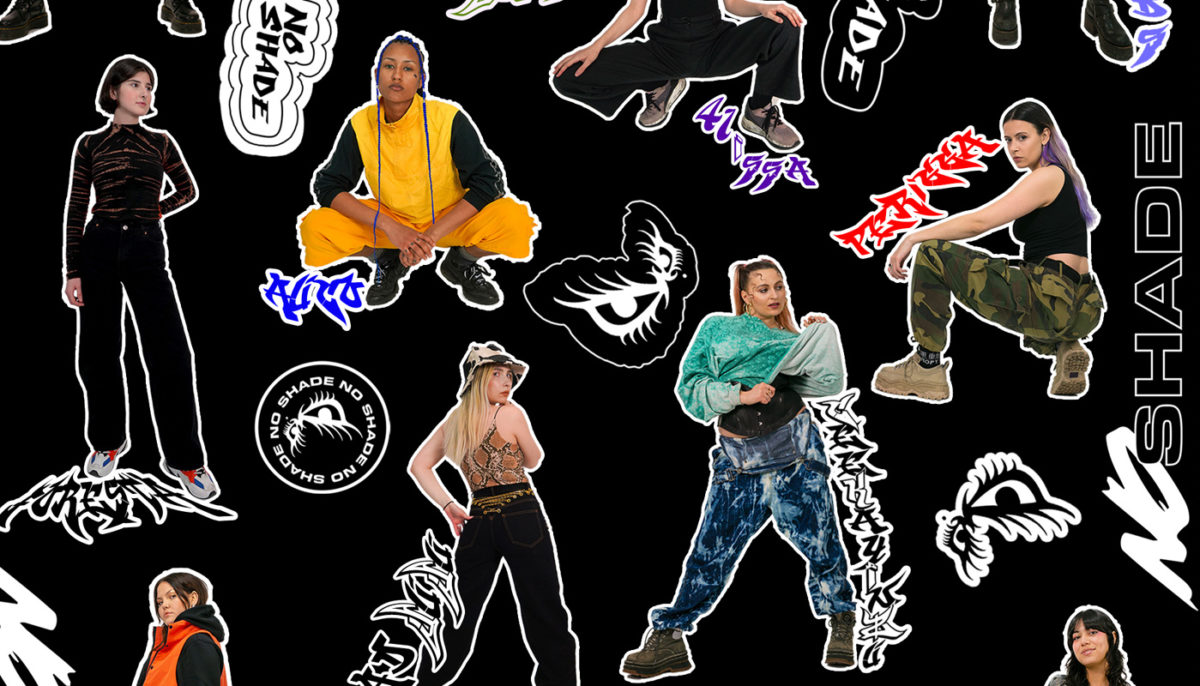
There is definitely a social responsibility on every side of the music industry to provide spaces and support for marginalized identities to thrive. The very roots of electronic music stem from marginalised communities making spaces for themselves and innovating, as there was no space for them in the mainstream. Just from the sheer volume of queries No Shade receives about participating in our program (and many other similar programs run by our friends like Eclat, Pxssy Palace, and Discwoman ) it’s clear there is a huge appetite for marginalised communities to be involved in electronic music – there is just limited access due to historically oppressive systems.
When we look at other elements of the industry, such as who engineers and runs the recording studios, lighting, live sound technicians, who selects which tracks get radio play or features on music sites and magazines, who is running the booking agencies and local promoters of club nights and shows, it’s still homogenous. You won’t find much on the work of femme, non-binary or trans-producers or their experiences when you read Richard Burgess’ milestone book The Art of Music Production. In general, people tend to thrive in environments where they feel represented, respected, and their experiences are understood, so having access to and being represented in these areas of the industry have a great deal of impact on representation and visibility.
New initiatives, mentoring opportunities and funding, etc. directed towards the aforementioned areas therefore hold a lot of potential to increase representation and visibility of femme, trans, and non-binary people in the electronic music industry.
Simonne Jones, musician
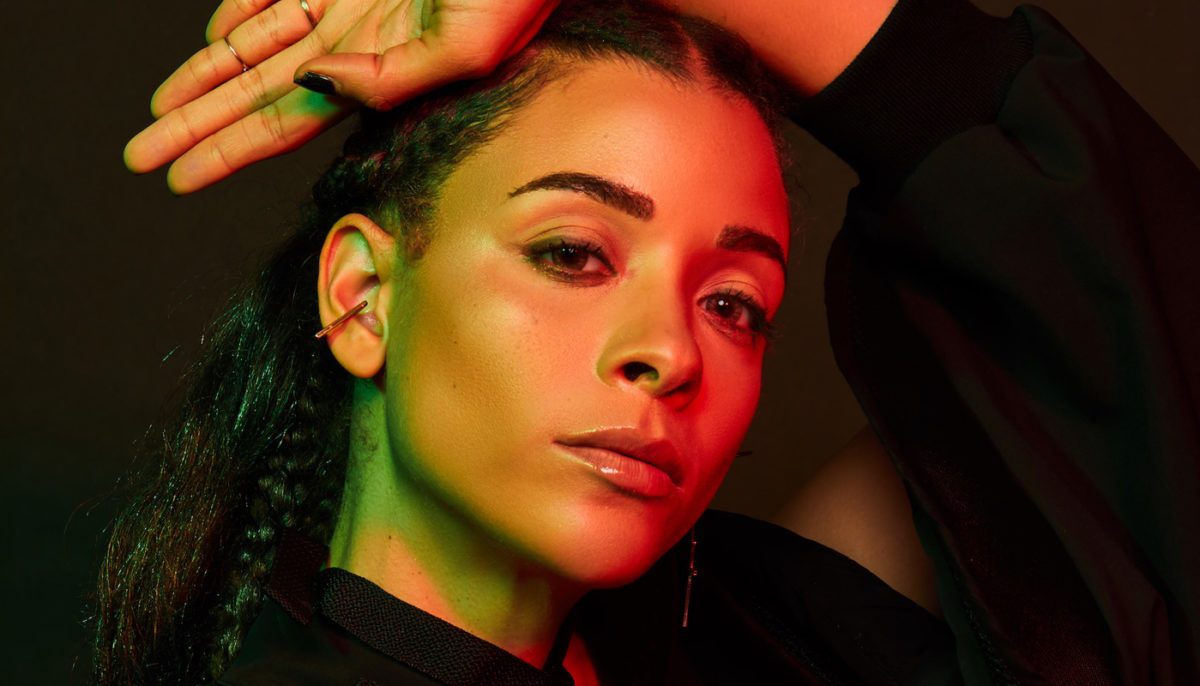
In order to improve the participation of women in electronic music we need to see versions of women in professional settings that bridge female access in the media. Women need to become visible. It is not a matter of talent or lack of producers. There are thousands of talented producers in electronic music that are undiscovered. It is important to me to make sure that I am visible in my work as not only a writer and singer but an engineer and producer. I studied engineering and am enthusiastic about technology.
When I go into a session with other women, I encourage them and teach them how to produce or engineer. At the very least I encourage a hands-on participation as a co-producer in terms of the description of their sound on a technical level, or by helping to bridge the access with encouragement and support. It is something that I have witnessed other men do with their peers and friends in the industry as almost a silent brotherhood, and women need to do the same as they rise up.
Consequently, I do outreach work with young girls wanting to become producers. I volunteer my time teaching teen girls how to become producers. I started making beats when I was 14, and if I can, anyone can regardless of their gender. After all, one’s sexual organs or social/cultural differences in their perceived sex do not inhibit one’s ability to think, press buttons on a midi controller, make beats, or understand complex musical ideas depicting feeling.
Brigid Gilbert, Head of Global Artist Relations, Ableton
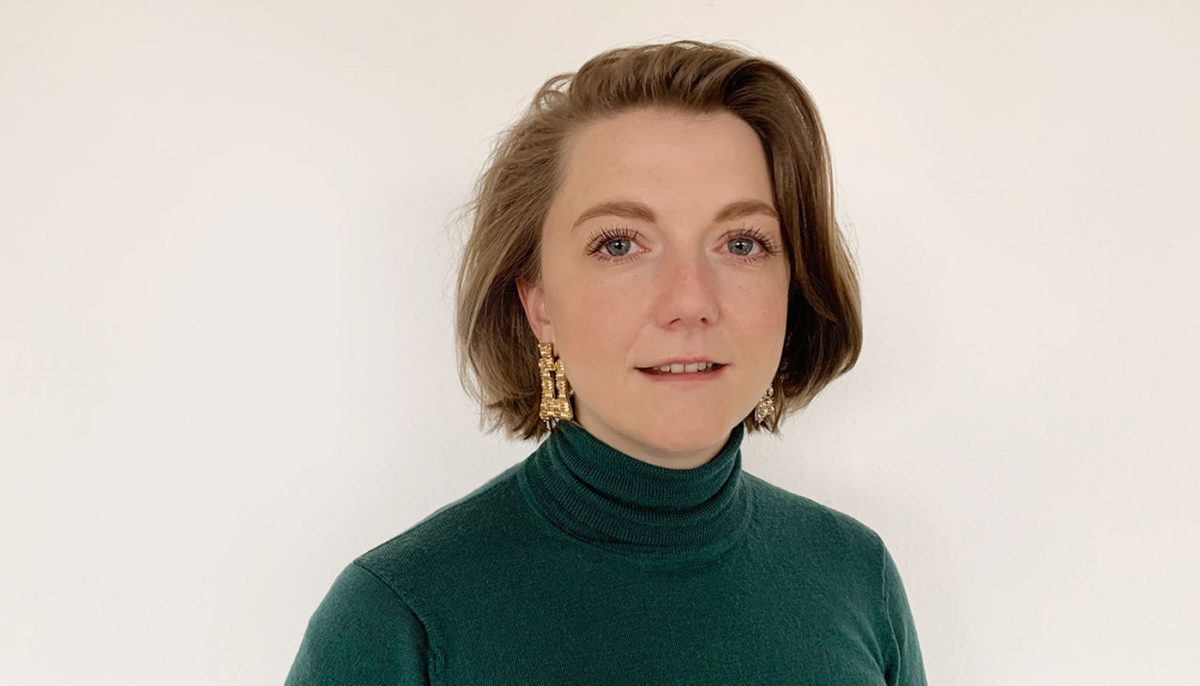
We need to stop talking and writing about the lack of participation and visibility of women in electronic music, and focus on promoting women, their music, and their creative work. Book them in our clubs and at our festivals. Write about them on normal days, not just on International Women’s Day. Book them to host our technical workshops and to produce, mix, and master our records. Stop giving public platforms to the issue, and instead, dedicate those same platforms and energy to feature the women who deserve the visibility.
With this in mind, here are two recommended recent releases: Lyra Pramuk’s new singles “Tendril” & “Gossip” off her forthcoming album Fountain and Veronica Maximova’s album Computer Love. Three of my favourite DJs right now are Sarah Farina, Anu, and Jossy Mitsu. Three great initiatives that engage with and promote women in music are Beats by Girlz, Keychange, and Pathwaves.
Yu Su, producer and DJ
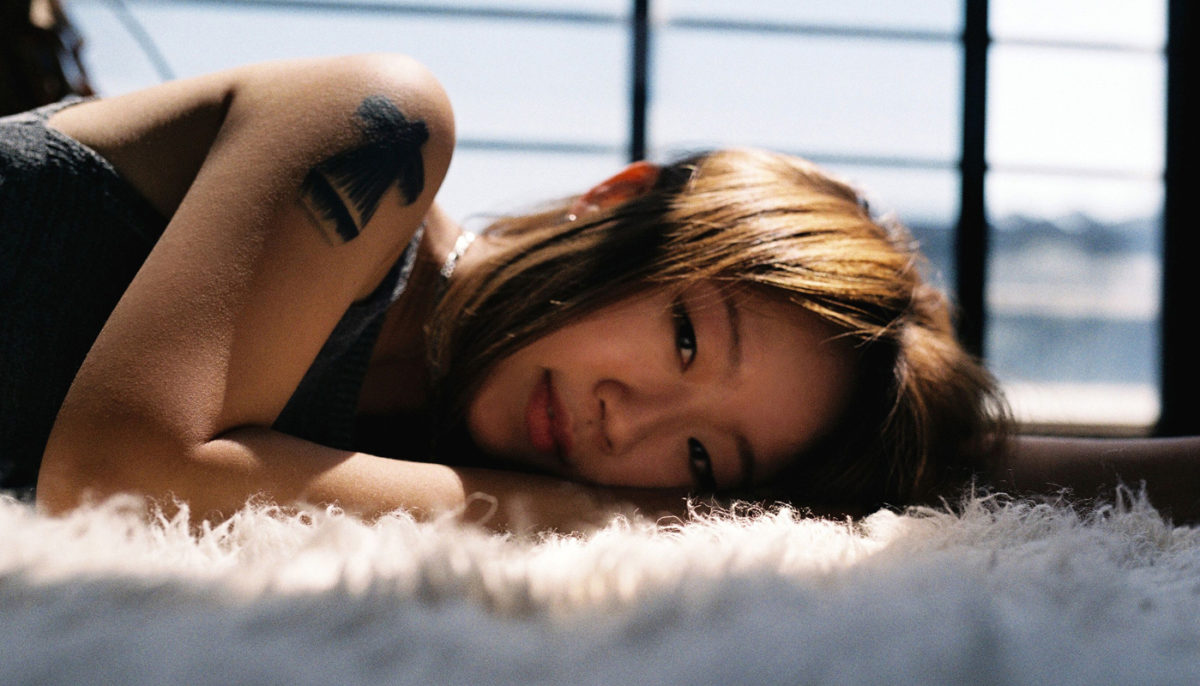
From my own experience, the harder part was more about learning all the technical parts of producing music, what program/gear to purchase, and not being able to afford programs/plug-ins. For me, once I had those all figured out in a way and started creating my own music, everything else eventually just came naturally.
I see a solid community and strong support going for women in electronic music today in North America, Europe, and the UK, and there are leading female figures who have had a huge impact on others through social media – so keeping up the momentum would be great. I would say that in the world of so-called underground music, things are looking really good, but this is probably not the case for the bigger, more mainstream music industry, and also the music industry outside of N.A, Europe, and the UK. There are voices that are harder to get heard elsewhere from people who don’t necessarily have the connections to our world of community.
Looking for those voices and supporting those people would be the next step I would say.
Sarah Farina, DJ
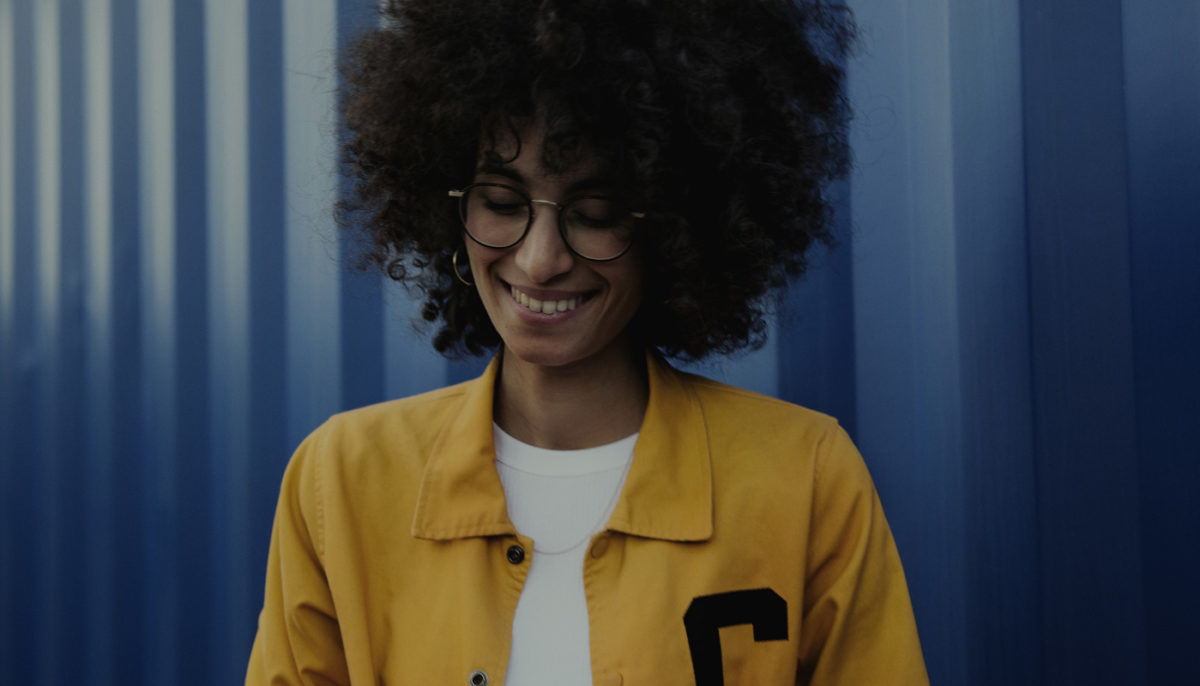
There isn’t this one thing that needs to be done and then everything will be ok, but I can say some of the most essential things are empathy and kindness. It’s something that needs to be practiced, it’s an ongoing process. And of course this goes beyond the music scene – it’s part of every aspect of our lives.
We need more kindness and empathy from people with more privilege for people from marginalized communities. If those communities are safe, supported, visible and included, we will all benefit from it. The environment will be more peaceful, and there is nothing more beautiful and wonderful than people achieving their full potential and getting to be their true authentic self, without being judged and held back.
It’s also pretty simple to me: Either you value the safety and happiness of other people or you don’t. And if you really care, you’re going to have to get uncomfortable. Listen, educate yourself, take responsibility/accountability, check yourself, speak up for us… Be a person that cares about other folks.
We also need more intersectional feminist thinking folks in power positions to really have a structual change, not only superficial.
My wish is also that folks with more privilege, get asked the same questions. What are they willing to do in order to make change happen?
It’s not fair to ask only marginalized individuals and communities for the solutions, I want those who perpetuate the oppressive system we live in (consciously or unconsciously) to be held accountable and use their power to dismantle and – structurally! – change the system with us.
We also need to build an ecosystem of support and cultivate joy, and speak more with each other than about each other.
I also want to say that activism can actually be very joyful. For me it means simply activating your mind and your heart. So go for it, speak to people, Listen, understand how and where you can do better, make some space, invite new people in your circle or co-create new spaces that are more inclusive and participatory for different kinds of people and realities.
“We can create our own history. You and I are creating a history right now. We should think about every conversation as a cultural and historic event.” – Alice Wong
I would also like to mention Aequa, a community for social equity, and Transmission, An on- and offline platform for sounds, moves and sentiments that I just launched with my dear friend Kerstin Meißner.








